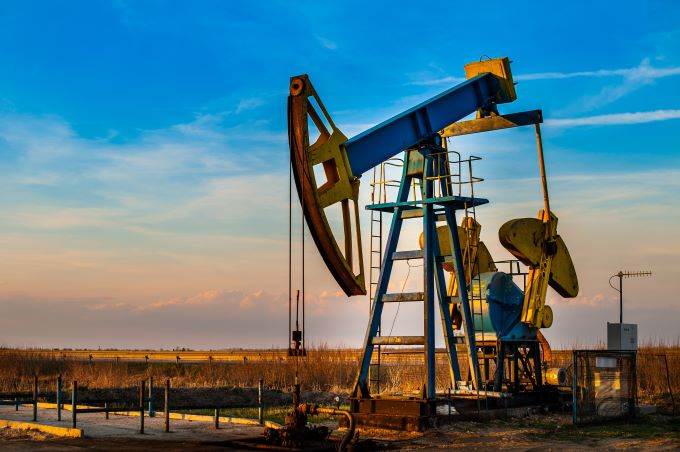 Oil prices dipped below $20 per barrel on Monday, touching lows not seen since February 2002, before edging higher into Tuesday’s Asian trading session. Brent crude, the global benchmark, fell to its lowest point in 18 years, $21.65 per barrel. It was trading at $22.88 per barrel as of 1:21 p.m. HK/SIN. Brent futures have plummeted over 65 percent since the start of 2020. U.S. WTI was trading at $21.06 per barrel after touching $19.27 per barrel on Monday. U.S. WTI prices have declined over 50 percent in March alone.
Oil prices dipped below $20 per barrel on Monday, touching lows not seen since February 2002, before edging higher into Tuesday’s Asian trading session. Brent crude, the global benchmark, fell to its lowest point in 18 years, $21.65 per barrel. It was trading at $22.88 per barrel as of 1:21 p.m. HK/SIN. Brent futures have plummeted over 65 percent since the start of 2020. U.S. WTI was trading at $21.06 per barrel after touching $19.27 per barrel on Monday. U.S. WTI prices have declined over 50 percent in March alone.
The heavy selloff in the oil markets highlights a global economic problem that expands far beyond the oil industry. Factories have halted production worldwide. Stores are closed across the globe, halting the demand for inventory, and airlines have grounded most, if not all of their fleet. Bank of America has forecast that global oil consumption will decline by 12 percent this quarter, or 12 million barrels per day, the steepest quarterly decline in history. “…there is no way to sugarcoat it,” the bank’s analysts wrote in a note to clients on Monday. Goldman Sachs analyst Jeffrey Currie said that a decline in U.S. gasoline demand thanks to the new lockdown laws implemented across the country will cause the “largest economic shock of our lifetimes.” In fact, gasoline prices in the U.S. have touched below $2 per gallon in some states.
In addition to the decline in global demand, Russia and Saudi Arabia remain committed to flooding the world with oil, driving U.S. prices alone down 68 percent since their peak in January at over $63 per barrel. Yesterday I wrote about how the oil price war is likely to damage not only African economies, but also their ability to finance the healthcare needed to deal with the COVID-19 pandemic. But Africa isn’t the only region that stands to lose from the decline in oil prices; U.S. shale oil companies are facing bankruptcy due to the rise in production. In fact, despite U.S. President Donald Trump’s prior calls to produce more and to keep oil prices low, even Trump is now concerned about the global supply glut. Sources say that on Monday he spoke with Russian leader Vladimir Putin about the dire situation, though no further details were provided.
Oil analysts have little hope that the situation will be resolved quickly. The only question now is how much carnage the oil markets will see before the recovery begins.
